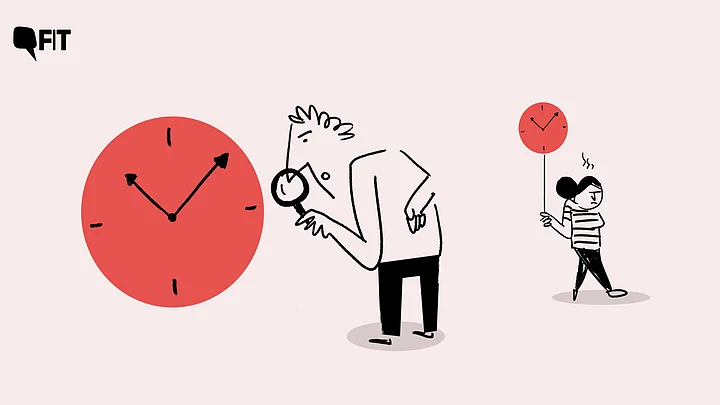We have been living in strange times, and the many of the normal routines have been disrupted over the last couple of months. Thanks to the lockdown, limited to no outdoor activities, being glued to our phones and laptops at all times, our body clock especially maybe running a little haywire. And if you are like us and need a little help resetting your body clock, here’s everything you need to about how it functions and how you can fix it, to suit your functioning.
What exactly is the body clock?
The body clock or the circadian clock is an internal clock that keeps track of time. The circadian rhythm is what helps regulate the periods of sleepiness and wakefulness throughout the day and accordingly helps control body temperature, hunger and sleep.
The body clock runs on the same schedule for most people, you wake up in the morning and sleep at night. But for some that may not be the case. There are people who prefer waking up earlier than most and find themselves full of energy. There are others who have a tough time getting up in the morning, but their energy picks up as the day proceeds or the evening sets in. Body clock also varies with age - babies need upto 17 hours of sleep, teenagers around ten hours, as you grow older, you can make do with 7 to 9 hours of sleep and after the age of 65, you may see the sleep patterns shift and you needing less sleep.
It is important to see what suits you best and work with that.
What happens when your body clock is off?
Remember what jet lag feels like? Your body clock can mess with your hormones, digestion and immunity. It can affect your performance and concentration levels at work, school or college.
What works really well for your body clock is routine. If you think pulling a string of late nights during the week and compensating for the lack of sleep over the weekend can work, it won’t. Sleeping too much is also not good for your body. And any disruption of routing can put your body out of sync, making it hard for you to function.
So, what about naps?
It depends on how smart you are about them. A 20 to 30 minute afternoon nap or what are called power naps, can actually be good for you. It will leave you feeling alert, boost your mind and make your more productive, without messing up your sleep at night. A longer nap during the day, can leave you groggy and also affect your night time sleep.
Start resetting your body clock, slowly
Don’t rush into trying to reset your body clock. If you want to start sleeping earlier and waking up earlier, start with setting your time back by 15 minutes and then gradually increase it to one or two hours. Also, be a little boring and like we said before, stick to a routine - go to sleep and wake up at the same time every day. An hour before you plan to sleep, turn off your TV, laptop, phones and the light. It helps. And finally, do not reach for that late night snack.
And talking about following routines, it applies to when you wake up also. Embrace the light outside, try to go for a short walk or exercise the same time every day. Following a routine in the morning can help cut down Melatonin, the hormone that makes us sleepy.
Sleeping and waking up are restorative processes and that along with an optimal body clock or circadian rhythm can help us perform at our best, every day.
(At The Quint, we question everything. Play an active role in shaping our journalism by becoming a member today.)
